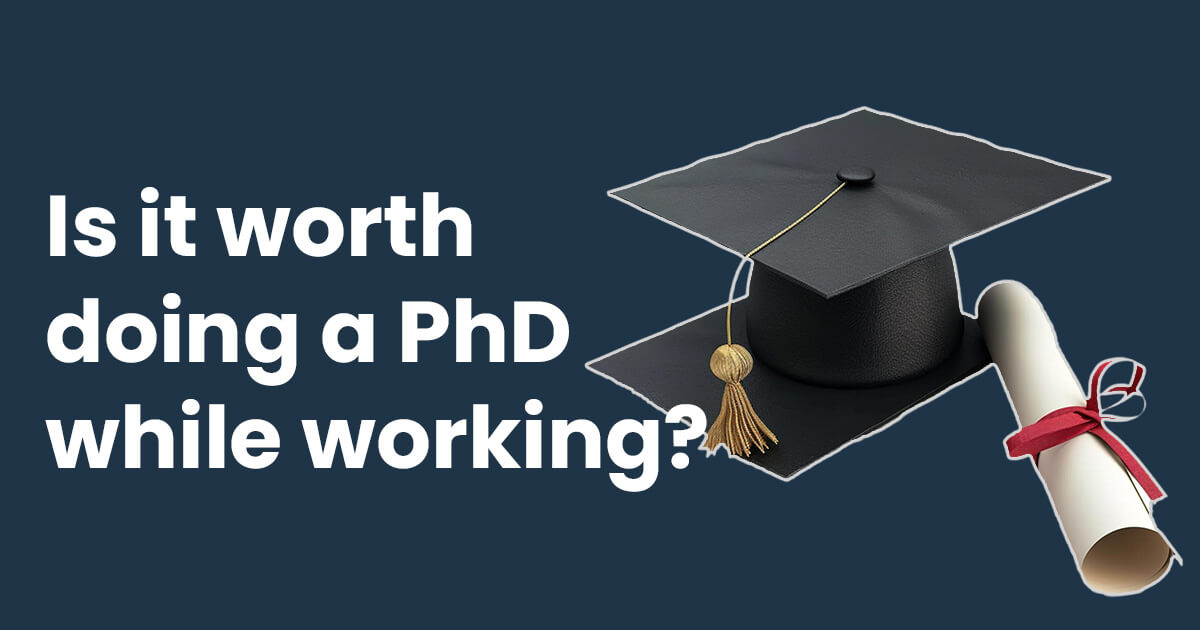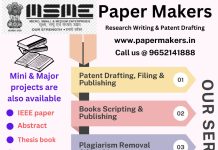
Pursuing a PhD is a big commitment that requires time, work, and attention. For many working professionals, the question arises: is it worthwhile to pursue a PhD while working? Balancing work and PhD studies can be difficult, but it can also provide unique benefits and opportunities.
Those who want to pursue PhD studies while working, those can opt for the PhD for Working professional program. This blog discusses the benefits and drawbacks of getting a PhD while working, as well as strategies for navigating this rigorous dual route.
What is a PhD for a Working Professional Program?
A PhD for Working Professional Program is meant to assist professionals in obtaining a doctoral degree while continuing to work. It provides flexible scheduling and online components to fit hectic work schedules.
The program emphasizes advanced research and practical applications relevant to the professional sector. Individuals can improve their skills and professional possibilities without taking a break from their jobs.
Here are the types of PhD for working professional programs that are specially designed by considering working professionals:
- Part-Time Ph.D: It allows you to work while earning your degree.
- Executive Ph.D: It is intended for senior professionals with extensive job experience.
- Online/Distance Ph.D: They provide the option to study remotely.
What are the benefits of a PhD Program?
Here are the few benefits of pursuing a PhD for working professionals program are listed below:
- Financial stability: One of the key advantages of working while obtaining a PhD is financial security and for that consideration, universities offer a PhD for Working Professionals Employment provides a consistent income, which can help reduce the financial burdens connected with higher education.
Working professionals, unlike full-time students who may rely on loans or scholarships, can better manage their spending, lowering the financial burden of getting a doctorate.
- Real-World Experience: Working while studying helps you to get real-world experience that will benefit your academic research. Practical insights from your job can provide important views and examples for your dissertation.
This practical application of theory can make your study more relevant and influential, possibly leading to novel solutions to industrial challenges.
- Professional Development: Balancing a job with PhD studies indicates excellent time management and organizational abilities, which are highly sought by companies.
Completing a PhD while working demonstrates your capacity to multitask, prioritize, and persevere in hard conditions. These qualities can improve your professional reputation and lead to new job prospects, both within and outside of your current organization.
- Networking Opportunity: Maintaining a job while obtaining a PhD can help you build your professional network. You engage with coworkers, industry professionals, and academics, generating prospects for collaboration and future employment.
These relationships can help you advance your career by providing assistance and varied opinions on your study.
What are the tips for Successfully Balancing Work and PhD Studies?
Here are a few tips for successfully balancing work and PhD Studies are mentioned below:
- Effective time management: Time management is essential for balancing work and PhD study. Make a precise calendar that sets aside certain periods for work, study, and personal activities. Use calendars, planners, and time-tracking applications to stay organized and manage your responsibilities successfully.
- Communicate with employers and advisors: Open communication with your workplace and academic advisors is critical. Similarly, advise your academic counselors about your professional responsibilities. They can offer assistance and flexibility to help you manage both tasks.
- Set boundaries: Set clear limits for work, education, and leisure time. Avoid multitasking and concentrate on one work at a time to boost productivity and reduce stress. Set aside discrete places for work and study to create a comfortable setting for each activity.
- Seek Support: Don’t be afraid to seek help from coworkers, family, and friends. Their encouragement and understanding can make a major difference in balancing work and school responsibilities. Sharing experiences and recommendations can lead to great insights and motivation.
- Care for Your Health: Maintaining your physical and emotional health is critical when juggling a job and a PhD program. Taking care of your health can boost your overall well-being and ability to handle many duties.
- Be flexible: Flexibility is essential for managing the unpredictability of work and academic demands. Prepare to change your schedule and plans as needed.
How College Vidya Helps:
College Vidya is an online web platform with over 100 reputable online institutions that are UGC-DEB, AICTE, and NAAC-approved. Furthermore, the website is user-friendly. All you need to do is visit the website once and complete a few questions about your selected course, credentials, and budget. Based on your response, College Vidya will only propose institutions that meet these requirements. Furthermore, you may evaluate different colleges based on accreditations, pricing, and other factors to find the perfect fit for you.
Furthermore, there is no need to worry about fraud because College Vidya only displays institutions that are government-approved and have all of the necessary approvals to provide an excellent education.
Conclusion:
Pursuing a PhD while working is a difficult but rewarding flexibility. Its financial security, real-world experience, professional development, and networking opportunities can all help you further your career and academic goals. The PhD for working professional program holds the same recognition as the regular PhD program and this program is specially designed for working professionals.
However, it is fraught with difficulties such as time limits, limited focus, personal sacrifices, and a lengthy period of study. Successful balance necessitates excellent time management, open communication, clear limits, support from others, health considerations, and flexibility. By carefully weighing the benefits and drawbacks and applying ways to balance job and academic duties, you may make an informed decision about whether pursuing a PhD while working is the appropriate option for you.
Finally, the worth of this flexibility is dependent on your unique aims, circumstances, and ability to negotiate the demands of both.



